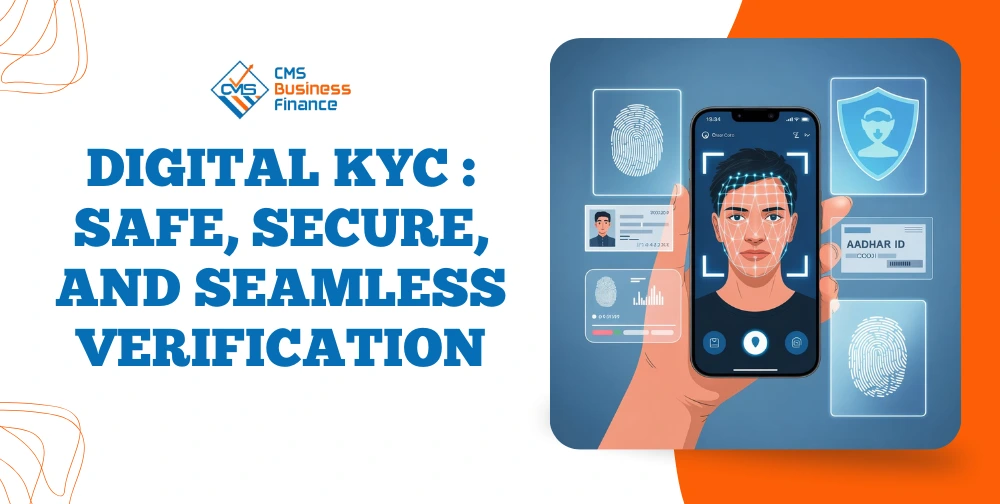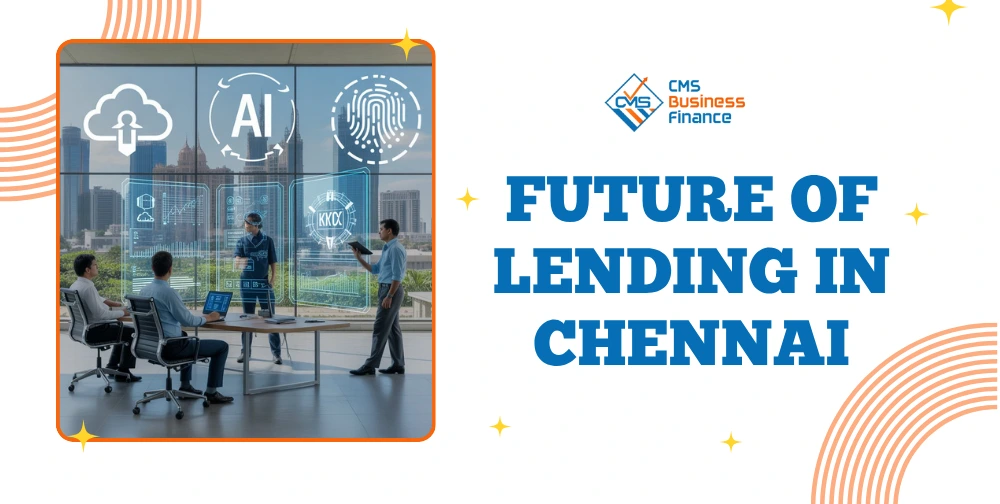Chennai’s financial landscape is undergoing a remarkable transformation with digital innovation in lending. What used to take weeks of paperworks and several visits to the office is being fast phased out by technology-driven solutions. The city’s varied economic ecosystem ranging from IT services, manufacturing, and healthcare creates a fairly large set of borrowers with custom financial service needs requiring faster turnaround time yet absolute transparency.
It is a new evolution that would serve the tech-savvy professionals and traditional business owners alike. Both would require quick access to cash. The digitization process was further accelerated with the emergence of disparate customer expectations and favorable regulations for fintech innovations.
AI in Loan Processing: Speed, Personalization, and Accuracy
Artificial Intelligence is transforming the mode that lending institutions perform to determine creditworthiness and process applications. Machine-learning-based algorithms are now being used for small loan agency in Chennai operations to analyze the profile of borrowers within minutes instead of days. These AI-based systems can simultaneously use hundreds of parameters – transaction history, spending patterns, maybe even social media footprints – to weigh all the data against one another, thereby creating risk scores that are very tightly packed.
This technology provides real-time credit scoring beyond traditional methods, thus bridging the gaps between the two. AI algorithms may even provide insights into patterns of borrower behavior that human underwriters would miss, thus more accurately determining risk and preventing defaults. Such an advanced method enables lenders to offer loan products tailored to individual financial situations and repayment abilities.
AI chatbots and virtual assistants handle the first customer inquiries while helping applicants navigate the application process and provide support 24/7. This has allowed for greatly reduced processing times while making sure the quality of customer interactions remains high.

Digital KYC: Safe, Secure, and Seamless Verification
Digital KYC has transformed the verification of identities from a tiresome, paper-dependent procedure to a streamlined digital experience. With the aid of technologies such as Optical Character Recognition (OCR), biometric recognition, and video examination, borrowers are given the opportunity to verify their identity without leaving the comfort of their homes.
Integration with Aadhaar-based eKYC and other government-endorsed digital identity systems ensures faster and more secure verification. In their process, facial recognition validates that the applicant is indeed the document holder. On the other hand, blockchain systems keep these digital records tamper-free.
Such digital KYC solutions also have arrangements with fraud detection and are capable of identifying suspicious document presentations or mismatched information on the records in real-time. When a potential risk is identified, it is flagged by the system on its own and human reviewers are then spared to work on complex cases that require human intervention.
Benefits for Both Borrowers and Loan Agencies
AI and digital KYC bring huge benefits to each participant in the lending ecosystem. For instance, these benefits translate to drastically reduced client application processing time, often hours as compared to weeks. Time-wise convenience is in the ability to apply from anywhere around the clock with the assurance of no more office visits or long waitings.
Since such technological advancements have increased transparency in interest calculations and repayment schedules, private financing in chennai for monthly interest has started to be shifted onto the digital platform. CMS Business Finance stands as an example of a company that has harnessed such opportunities to offer a clear cost analysis. An automated system also allows the borrower to consider various loan options before settling on any one.
Lending agencies experience more efficiency in their operations owing to decreased manual work and lesser processing costs. AI-based risk assessment ideally lets the portfolio quality be better, thus lessening the default rate of borrowers. Through digitizing the documentation system, issuers alleviate any physical storage of past documents that are inconvenient and ensure compliance with regulatory requirements.
The technology made it possible to promote the reach toward underbanked sections by using alternative data sources, particularly creating opportunities for financial inclusion and simultaneously ensuring responsible lending.

Future of Lending in Chennai: How Tech is Shaping Trust and Transparency
The Chennai lending landscape is now witnessing the advent of an era full of transparency and customer orientation. With the present exploration running toward making use of blockchain technology for immutable loan records, open banking initiatives will now allow financial data of borrowers to be shared seamlessly across multiple platforms.
In the future, private loan in Chennai will increasingly become integrated into e-commerce platforms and business management software. They would come up on the digital front at financial stages that the borrower utilizes as a part of one’s day-to-day activities.
Predictive analytics could allow lenders to give proactive financial advice to borrowers so that scheduling will occur in such a way as may be beneficial for them in repaying the loans or possibly saving them from distress. Such real-time study will also provide grids for early warnings to both lenders and borrowers so that they can cooperate together in the management of the loan.
Infrastructure on RegTech ensures that these innovators remain on the right side of evolving financial regulation without forfeiting the speed and flexibility that today’s borrowers have come to expect.
Conclusion
Artificial Intelligence is transforming the mode that lending institutions perform to determine creditworthiness and process applications. Machine-learning-based algorithms are now being used for small loan agency in Chennai operations to analyze the profile of borrowers within minutes instead of days. These AI-based systems can simultaneously use hundreds of parameters – transaction history, spending patterns, maybe even social media footprints – to weigh all the data against one another, thereby creating risk scores that are very tightly packed.
This technology provides real-time credit scoring beyond traditional methods, thus bridging the gaps between the two. AI algorithms may even provide insights into patterns of borrower behavior that human underwriters would miss, thus more accurately determining risk and preventing defaults. Such an advanced method enables lenders to offer loan products tailored to individual financial situations and repayment abilities.
AI chatbots and virtual assistants handle the first customer inquiries while helping applicants navigate the application process and provide support 24/7. This has allowed for greatly reduced processing times while making sure the quality of customer interactions remains high.
Frequently Asked Questions
Q1. How are loan agencies in Chennai using AI in their operations?
Loan agencies are adopting AI to speed up credit assessments, personalize loan offers, and improve risk prediction through data-driven insights.
Q2. What is Digital KYC and why is it important?
Digital KYC uses tools like OCR, biometrics, and video verification to simplify identity checks, reduce fraud, and make the process paperless.
Q3. Are AI-based loan approvals secure?
Yes, AI systems are combined with fraud detection and blockchain-backed KYC to ensure high levels of security and compliance.

